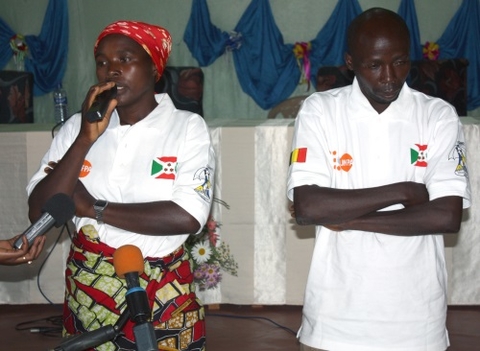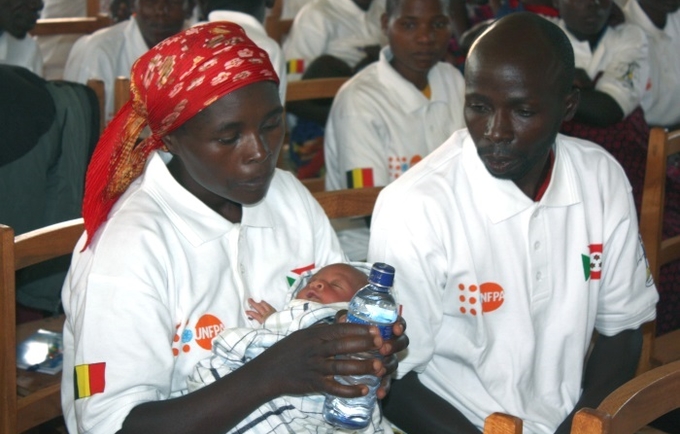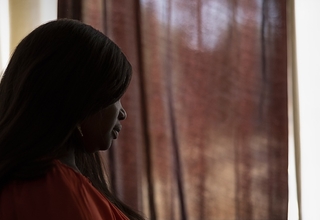NGOZI, Burundi – Pulchérie Mugwaneza’s story moved those who listened to her: "I started to have urine that flowed without me (being able) to stop it,” she said, and as she spoke tears began falling down her cheeks.
Pulchérie, her husband and her two-month-old baby were attending a special day organized by the National Health Reproductive Programme in collaboration with UNFPA, on the International Day to End Obstetric Fistula. Here, women who had experienced the agony of a fistula and their families gathered to share their experiences.
In her case, and in most instances, her fistula began after a long and difficult birth, in this case of her first child. The response by the health providers who attended her was to give her antibiotics and recommend that she return home. The incontinence would gradually disappear, she was advised.
“I was ashamed of myself”
But this was not to happen. “After a few days, the constant discharge became smelly. When I walked for a long time it was as if someone had put chili on me. I was ashamed of myself,” she said.
Not surprisingly, her condition put a severe strain on her marriage. “My husband could not bear it. He left me for a while, arguing (that) he was going to search for work elsewhere,” she said.
But fortunately for Pulchérie he returned home. Many women with fistulas are permanently shunned by their husbands and often, their families and communities too. Pulchérie was more fortunate: “He contacted the health centre, which referred me to the centre of repairs for fistula in Gitega,” she said.
“I thank God for this child”
At the centre, Pulchérie was successfully operated on and was sent home with tips for good recovery, including sexual abstinence for six months. “To cure this evil, the support of the spouse, family, friends and the community is important,” she said. “I think that’s the most important.” Then touchingly, she turned to her babe-in-arms. “I thank God who rewarded me by giving me this child after losing two others.”
Pulchérie’s husband was next to tell their story. He acknowledged that while she was suffering, it was not always easy for him to understand what was happening, given that not much is known generally about the condition. After his wife underwent the operation to repair her fistula, he thought to himself: “My God, how difficult will it be to abstain from sex for six months! I thought that after the operation everything would return to normal. It was only after seeing the doctor for further explanation that I understood.” It was his wife who needed the time to heal.
 Pulchérie giving her testimony, her husband by her side. Photo: UNFPA Burundi |
Thousands of women suffer needlessly
In Burundi, around 3550 women suffered from fistula in 2013 and each year, an estimated 750 more women are affected by the condition. In 2014, the Urumuri Centre in Gitega, which specializes in the management of obstetric fistula, treated 322 women. Of these, 248 or around 77 per cent were completely cured.
Community health workers play an important role in the social reintegration of women suffering from fistulas or after being operated on. Nduwimana Geraldine, a community health worker in Ngozi, has recently supported a family in which the wife and mother developed a fistula. At the event, she described her intervention: “A fistula was diagnosed when they were about to have their third child. The husband didn’t want to hear anything – he wanted to marry another healthy woman.”
She spent time explaining to him what a fistula is and how and why it can develop. She visited the family three times a week and eventually, her efforts paid off: “The husband came to understand and even showed invaluable support to his wife during and after the operation – which succeeded, fortunately.”
By By Nadège Ininahazwe, UNFPA Burundi



